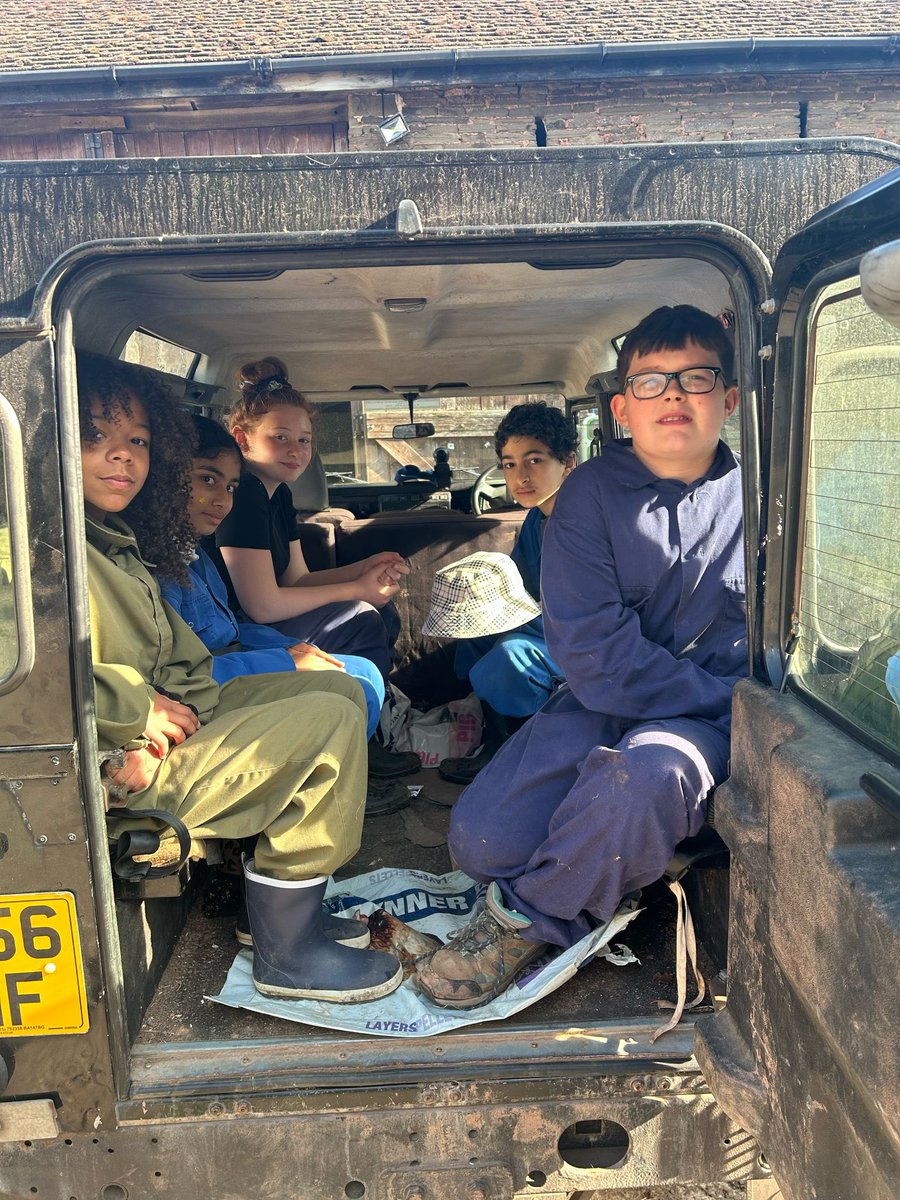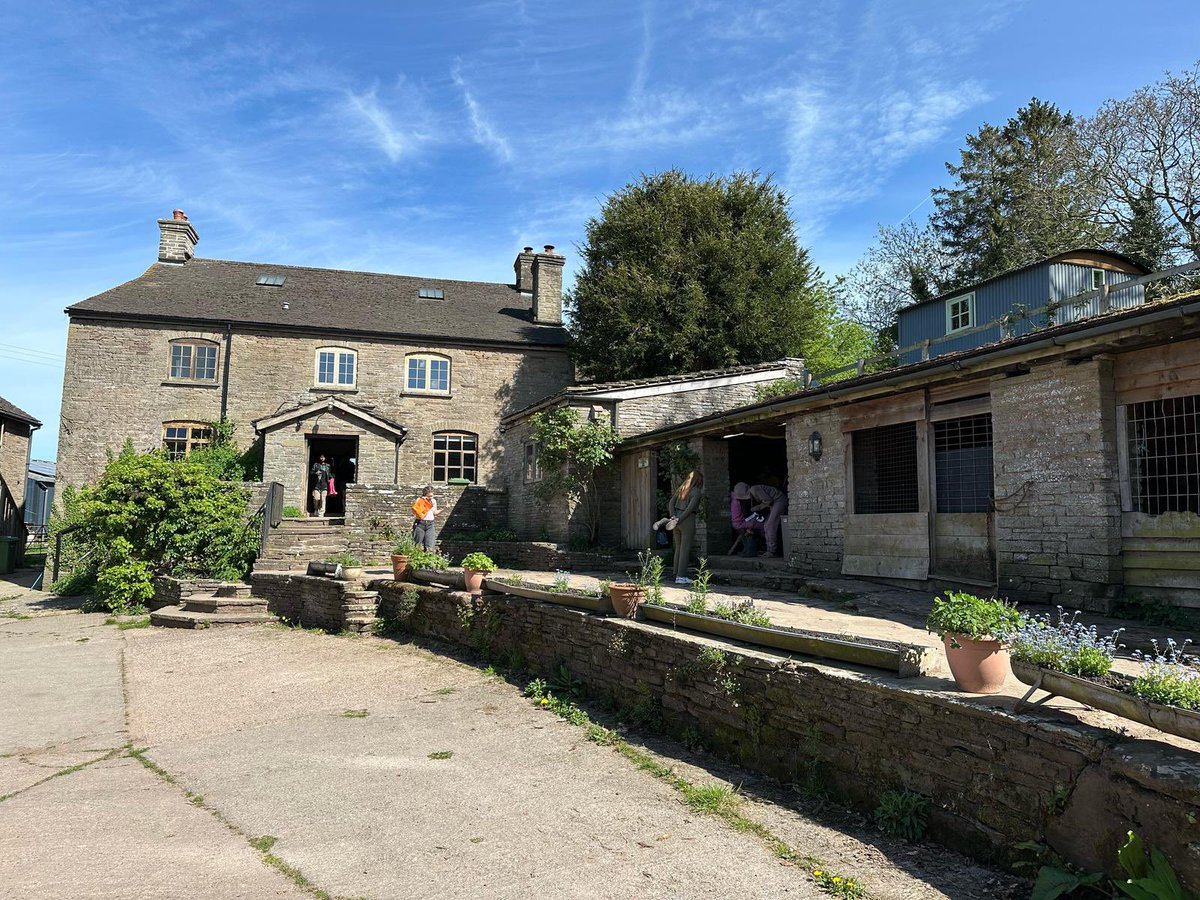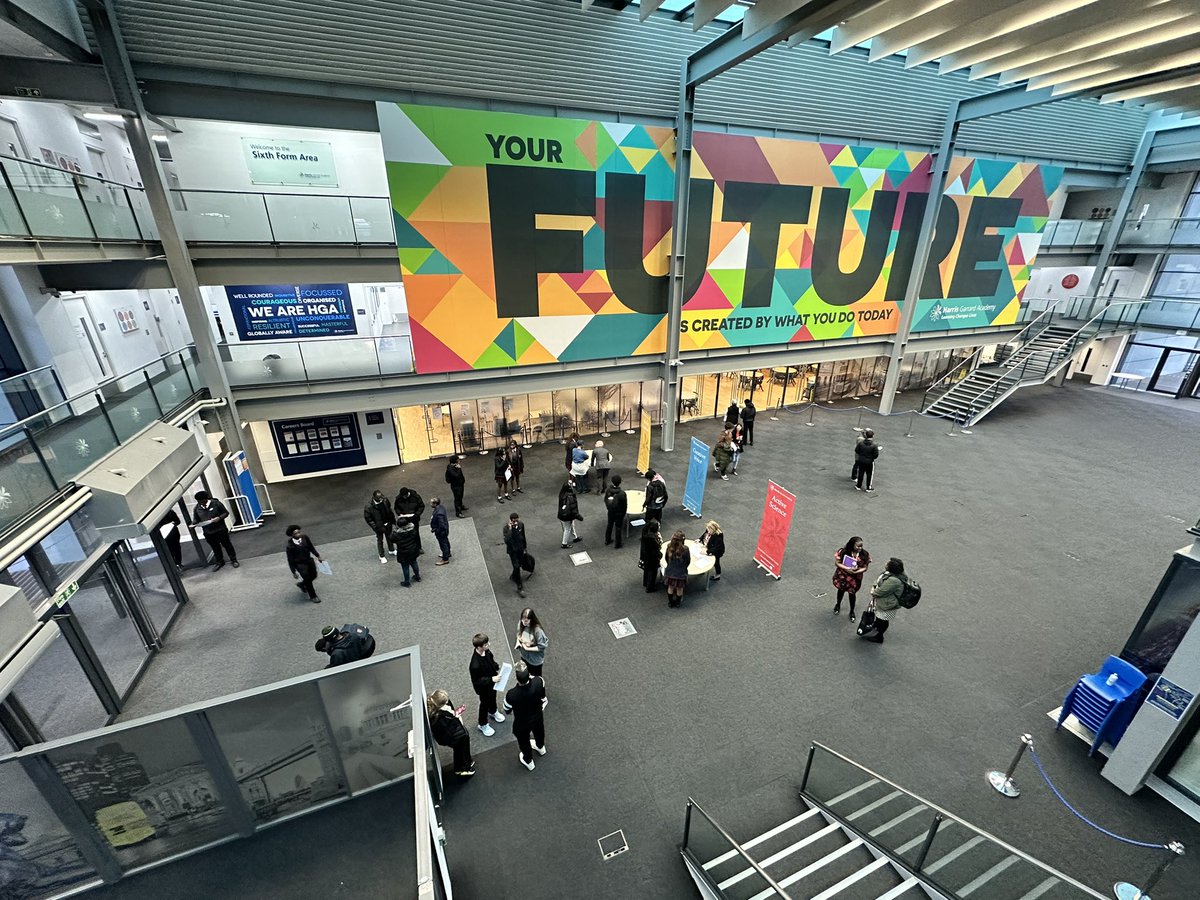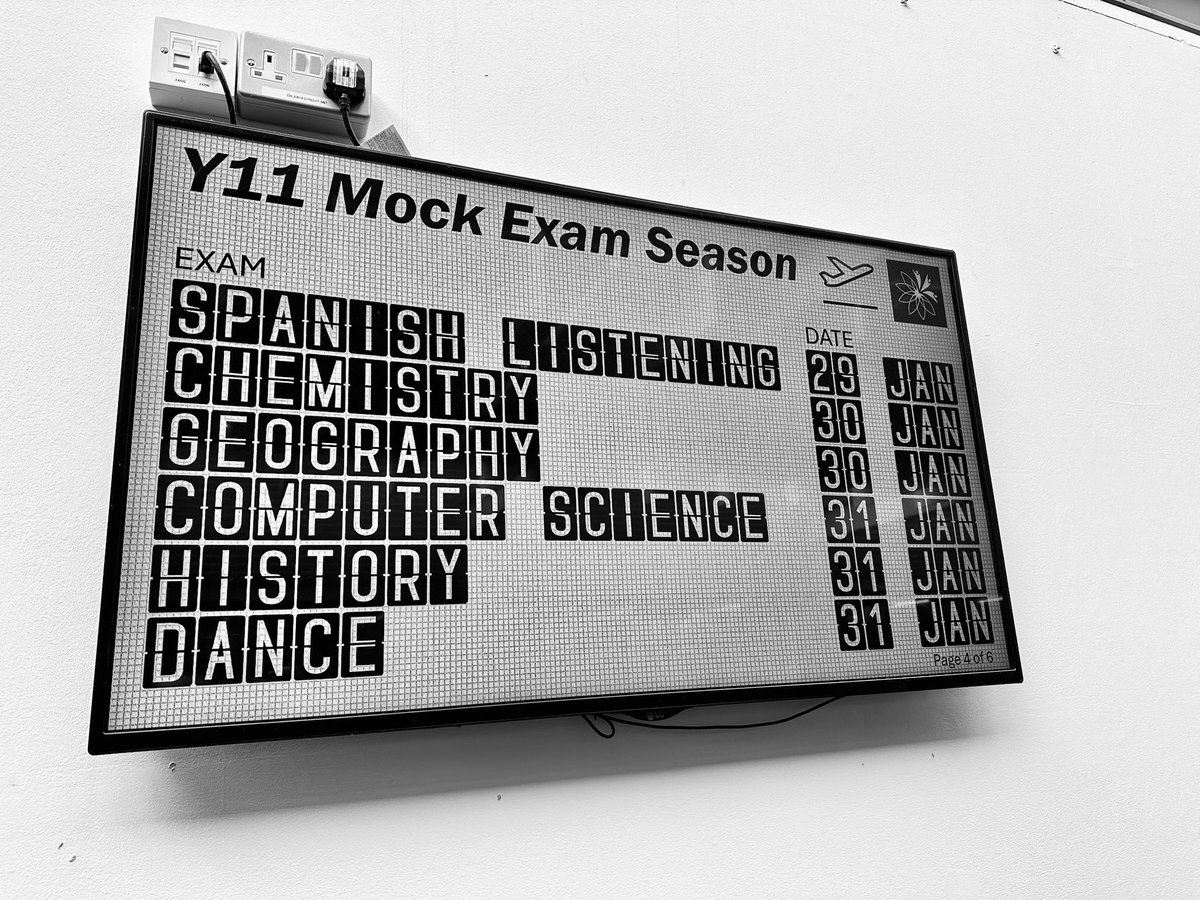Curriculum Overview
At Harris Garrard Academy, our curriculum intent is designed to break the cycles of poverty and disadvantage, enhancing social mobility and improving life chances for all students. In doing so, we contribute to the betterment of our local community and empower our students to thrive.
This page contains an overview of our curriculum across all Key Stages. Details of the curriculum for each subject (for primary, secondary and sixth form) can be viewed on our Subjects pages. Our curriculum policy can be downloaded from the Teaching and Learning page. For further information about the curriculum please contact info@harrisgarrard.org.uk or 0208 320 4800.
“Even the knowledge of my own fallibility cannot keep me from making mistakes. Only when I fall do I get up again”. Vincent Van Gogh
Curriculum intent
 At Harris Garrard Academy, our curriculum is designed to provide a high-quality, coherently planned and sequenced education for all pupils from Early Years to Year 13, to provide all students with a quality learning experience. Our intent is to equip every student with the knowledge, skills, and cultural capital they need to succeed in life and become responsible, effective, and active citizens.
At Harris Garrard Academy, our curriculum is designed to provide a high-quality, coherently planned and sequenced education for all pupils from Early Years to Year 13, to provide all students with a quality learning experience. Our intent is to equip every student with the knowledge, skills, and cultural capital they need to succeed in life and become responsible, effective, and active citizens.
Our curriculum is built on the following principles:
- Ambition for all: We set high expectations for every pupil, regardless of their background or starting point. Our curriculum is designed to be challenging yet accessible, promoting academic excellence and personal growth. We begin with the principle that all children are equal and have an equal entitlement to knowledge. The inventive design of our curriculum and its high-quality implementation are integral to our core values at the academy, every child, every day.
- Knowledge-rich learning: We prioritise the acquisition of powerful, purposefully-selected knowledge across all subjects. This knowledge is carefully sequenced to build cumulatively from Early Years through to Sixth Form, ensuring deep understanding and retention.
- Skills development: Alongside knowledge, we focus on developing essential skills. From early literacy and numeracy to advanced critical thinking and problem-solving, our curriculum prepares pupils for their next steps in education, employment, or training.
- Cultural capital: We aim to broaden pupils' horizons by exposing them to 'the best that has been thought and said'. Our curriculum and co-curricular activities enrich pupils' cultural, social, and moral development, fostering an appreciation for human creativity and achievement.
- Breadth and balance: We offer a broad and balanced curriculum throughout all key stages, maintaining this breadth while allowing for specialisation in areas of strength and interest as pupils progress.
- Preparation for life: Our curriculum is designed to develop well-rounded individuals who are knowledgeable about and interested in the world around them, equipped to navigate the challenges of modern life.
The purpose and aims of our curriculum
The purpose of our curriculum is to provide all pupils, with an education that changes lives, underpinned by our core values of respect, resilience, and rigour.
We aim to:
- Ensure every child, regardless of their starting point, develops the fundamental skills of literacy, numeracy, and digital literacy to a high standard, demonstrating rigour in their approach to learning.
- Provide a coherent, progressive learning journey that builds on prior knowledge and prepares pupils for future learning and employment, fostering resilience through increasingly challenging content.
- Develop pupils' subject-specific expertise, encouraging them to think critically and creatively within each discipline, showing respect for diverse perspectives and ideas.
- Foster a love of learning and intellectual curiosity that extends beyond the classroom and lasts a lifetime, embodying the rigour we expect in academic pursuits.
- Build pupils' resilience, independence, and character, teaching them to embrace challenges, learn from mistakes, and persist in the face of difficulties.
- Expand pupils' vocabularies and communication skills, enabling them to articulate their ideas confidently and respectfully in any context.
- Promote physical and mental wellbeing through both academic and co-curricular activities, emphasizing the resilience needed for a healthy, balanced life.
- Prepare pupils to be active, responsible citizens who contribute positively to society, showing respect for others and their communities.
- Provide opportunities for pupils to explore and develop their talents across a wide range of areas, from academics to the arts and sports, encouraging rigour in all pursuits.
- Ensure that by the end of their time at Harris Garrard Academy, all pupils are well-prepared for their next steps, whether that's further education, employment, or training, demonstrating the resilience and respect needed for future success.
Our values of ready, safe, (primary) respect (all), resilience, and rigour (secondary) are woven throughout our curriculum:
- Ready: We teach primary students the importance of being ready for their learning in both their attitude and organisation. This is a key foundation for the rigour expected at secondary.
- Safe: Across the primary safe and kind interactions so that all students feel safe to be themselves in our school is an important building block for the resilience needed in the secondary.
- Respect: We teach pupils to value diversity, understand different perspectives, and interact positively with others. This includes respect for themselves, their peers, staff, and the wider community.
- Resilience: Our curriculum challenges pupils to push beyond their comfort zones, learn from setbacks, and develop the mental toughness needed to succeed in an ever-changing world.
- Rigour: We maintain high academic standards, encouraging depth of understanding, attention to detail, and a commitment to excellence in all areas of study and personal development.
This curriculum intent and these aims are consistently implemented across all key stages, from Early Years to Year 13, ensuring a coherent and progressive educational journey for all our pupils. We regularly review and refine our curriculum to ensure it remains ambitious, relevant, and effective in meeting the needs of all our learners and preparing them for life in modern Britain and the wider world, always guided by our core values of respect, resilience, and rigour.
Curriculum sequencing for mastery
 At Harris Garrard Academy, we believe that a well-sequenced curriculum is fundamental to achieving mastery in learning. Our approach is informed by evidence-based practices that emphasise the importance of carefully structured content delivery, which is essential for fostering long-term retention and understanding among pupils.
At Harris Garrard Academy, we believe that a well-sequenced curriculum is fundamental to achieving mastery in learning. Our approach is informed by evidence-based practices that emphasise the importance of carefully structured content delivery, which is essential for fostering long-term retention and understanding among pupils.
A spiral curriculum is vital for enhancing pupils' long-term memory and retention of knowledge. By revisiting key concepts and skills at increasing levels of complexity, we ensure that pupils have multiple opportunities to consolidate their understanding. This approach aligns with the understanding that regular practice and retrieval of previously taught material are crucial for embedding knowledge in long-term memory. By structuring our curriculum to revisit core ideas, we can reinforce learning and help pupils connect new information to what they already know, thereby reducing the likelihood of misconceptions.
To effectively implement this spiral curriculum, we have carefully mapped out our schemes of work for every year group for the entire school year. Underpinning our schemes—both long-term and medium-term plans—is the application of spacing and interleaving. We believe these strategies are crucial for helping pupils commit knowledge and skills to their long-term memories, as well as achieving subject mastery. Knowledge acquisition is sequenced purposefully so that similar concepts are interspersed with different pieces of knowledge, rather than being taught consecutively. This method enhances pupils’ abilities to apply multiple pieces of knowledge to a single task, which can often be challenging.
Furthermore, we will strategically plan the progression of content across year groups and subjects. This mapping will allow us to determine the quantity, type, and timing of linked practice that pupils need to commit taught facts, methods, and strategies to memory. Research indicates that spaced repetition is more effective for memory retention than massed practice. By incorporating time delays between learning and practice, we enable pupils to revisit and reinforce their learning throughout the year, preventing opportunities for forgetting and promoting mastery.
We prioritise foundational knowledge, particularly in core subjects like mathematics, where proficiency in number and arithmetic allows pupils to progress through the curriculum at increasing rates. Research indicates that a strong emphasis on core declarative and procedural knowledge early in the learning journey leads to better retention and reduces the need for re-learning later. This focus on depth over breadth ensures that pupils develop a robust understanding of essential concepts.
Additionally, our curriculum design ensures that previously taught concepts are regularly reviewed, with their spacing carefully considered and planned into the curriculum. This approach prompts pupils to retrieve knowledge from long-term memory, which is more effective for retention than merely restudying material. By balancing new learning with opportunities for rehearsal and consolidation, we create a curriculum that not only prioritises core content but also fosters a culture of continuous learning. This strategy is particularly beneficial for pupils who may be at risk of gaps in their learning, ensuring that all pupils have equitable access to a high-quality education.
You'll find a long-term plan for each subject on our subject pages.
Curriculum implementation
 We take pride in our structured approach to curriculum implementation, ensuring that students build a strong foundation of knowledge through by knowing more and remembering more. Our curriculum is designed to start narrow and then widen, allowing students to engage with increasingly complex ideas as their knowledge develops.
We take pride in our structured approach to curriculum implementation, ensuring that students build a strong foundation of knowledge through by knowing more and remembering more. Our curriculum is designed to start narrow and then widen, allowing students to engage with increasingly complex ideas as their knowledge develops.
Lessons are designed to introduce new material in manageable steps, fostering critical engagement. We reinforce prior learning through cumulative recapping and low-stakes quizzing, enhancing long-term memory. Varied questioning techniques check for understanding and address misconceptions, ensuring meaningful learning.
Using the "I do, we do, you do" approach, we transition from live modelling to collaborative practice and independent work. We incorporate spaced retrieval and interleaving strategies to support knowledge retention while considering cognitive load to avoid overwhelming students.
Our curriculum prepares students for academic success and essential life skills. We integrate personal, social, health, and economic education, promoting respect and understanding of British values. We support students with special educational needs and those with English as an Additional Language, ensuring all learners benefit from our curriculum. Comprehensive careers guidance helps students make informed future choices.
Primary
Our curriculum is subject-based with each subject taught each week in every year group. It is informed by the national curriculum, but not limited to it as it is also built around core concepts by subject experts with an all-through perspective. With specialist teachers extending our art, Spanish and PE provision, all subjects are championed and celebrated.
The curriculum’s foundations begin in EYFS with each subject planned for progression from this starting point. At each stage, we include an appreciation of social and ethnic diversity and promote equality. Alongside the curriculum are enrichment opportunities which offer the best in cultural capital for our students and a co-curriculum of extended activities to support and grow different interests.
Our curriculum is carefully mapped through the progression of core concepts that underpin the teaching of each subject. These are built into the independent tasks, the knowledge focused assessments and clear end points for each year group in each subject. Key principles in memory and retrieval practice are used to build lessons and schemes of work that help structure the learning to make sure that knowledge is not lost and schema is built upon effectively.

Key Stage 3
Students in Year 7 to 9, follow a three year Key Stage 3 curriculum. The curriculum is designed to create a dynamic learning experience that enables all students to make consistent progress, ultimately excelling in their personal and professional lives. Students will study: English; Mathematics; Science; Physical Education; Religion Education; PSHE; History; Geography; Art; Computer Science; Design & Technology; Food Technology; Modern Foreign Language: Spanish; Music; and Dance. For students that are behind their chronological age in literacy and numeracy, catch up intervention will be provided.
Key Stage 4
 In Key Stage 4, we build upon the foundations established in Key Stage 3 with a rigorous and supportive curriculum that prepares students for their GCSEs and future pathways. All students will study: English Literature; English Language; Mathematics; Science (combined or separate); History and/or Geography; Modern Foreign Language: Spanish; PE (Core or Cambridge National). In addition, students will be study two of the following subjects: Religious Studies; Business Studies (GCSE or BTEC); Computer Science; Food Technology; Design and Technology; Dance Art; Sociology; Cambridge National ICT; and Music.
In Key Stage 4, we build upon the foundations established in Key Stage 3 with a rigorous and supportive curriculum that prepares students for their GCSEs and future pathways. All students will study: English Literature; English Language; Mathematics; Science (combined or separate); History and/or Geography; Modern Foreign Language: Spanish; PE (Core or Cambridge National). In addition, students will be study two of the following subjects: Religious Studies; Business Studies (GCSE or BTEC); Computer Science; Food Technology; Design and Technology; Dance Art; Sociology; Cambridge National ICT; and Music.
Our core curriculum is academically rigorous and complemented by diverse options, ensuring students develop these core skills. We encourage all students to study the English Baccalaureate (EBacc) subjects, including English, Mathematics, Science, and either History or Geography, alongside a modern language. This demanding curriculum fosters significant knowledge development and prepares all students for future success, regardless of whether they pursue the full EBacc suite.
Key Stage 5
Based on their performance at GCSE as well as their future career aspirations, students are placed on the most suitable pathway. At Harris Garrard Sixth Form there are three pathways:
- The Vocational Pathway where students study a range of Level 3 vocational courses including BTEC Business Studies and CTEC Sport
- The Mixed Pathway where students study a blend of Level 3 vocational and A Level courses
- The A Level Pathway where students study at least 3 A Level courses
Students select their subjects for a series of ‘blocks’ which are designed to ensure a suitable combination of subjects are selected.
Our subject offering and curriculum at Harris Garrard Sixth is designed to promote intellectual curiosity, academic challenge as well as ensure students are equipped with the necessary qualifications to pursue their future aspirations. Our Sixth Form seeks to be the embodiment of ‘Learning Changes Lives’.
Further details of all subject can be found on our Subjects pages.
Continuity of an all-through curriculum
The academy is committed to developing a truly all-through curriculum. Developing this aspect of the curriculum is an innovative and incremental process that will evolve over time, following a structured cycle of planning, implementation and review.
Evidence of the increasingly ‘all-through’ nature of our curriculum includes
Staff development
- All staff across the primary, secondary and sixth form phases have attended joint professional development sessions about curriculum
Curriculum planning
- Our Key Stage 3 curriculum has been reviewed and re-designed with input from primary-trained specialists, as part of a Federation-wide project
- Structured time is provided for subject leads from the primary and secondary phases to meet to discuss curriculum and plan collaboratively
The wider curriculum
- A comprehensive co-curricular programme is offered to all students. Many of these clubs run across phases e.g. all-through choir and all-through gardening club
- Students are able to participate in all-through events including the Christmas concert, student leadership elections and Sports Day
Wider curriculum
SMSC, PSHE, Mental & Physical Heath and RSE
In the primary phase, Spiritual, Moral, Social, and Cultural (SMSC) education is integrated into both assemblies and classroom learning. In the secondary phase, students engage in SMSC, Personal, Social, Health and Economic (PSHE) education, Mental and Physical Health, and Relationships and Sex Education (RSE) sessions during tutor time, assemblies, and character lessons (Years 7 to 9 and Year 12).
The academy’s curriculum aims to expose students to “the best that has been thought and said,” fostering an appreciation of human creativity and achievement. The Religious Education (RE) curriculum is fully compliant with Bexley’s Standing Advisory Council on Religious Education (SACRE) guidance. Additionally, the academy’s SMSC, PSHE, and RSE education are further enhanced through a co-curricular programme and a comprehensive educational visits programme, which includes trips to theatres, museums, and places of worship.
The academy fully implements the Department for Education (DfE) guidance on RSE and Health Education. In the primary phase, all students receive weekly lessons in PSHCE and Physical Education (PE). In the secondary phase, students learn about physical and mental health through weekly timetabled PE lessons and a dedicated weekly period of Character education in Key Stage 3.
Character
Curriculum life at the academy is firmly rooted in our core values. One of our key mantras is “Character is Key,” a phrase frequently referenced by staff and reinforced during assemblies. We are dedicated to supporting students in becoming confident, resilient, and independent individuals. All Key Stage 3 students participate in a weekly Character lesson, which is a personal development programme tailored to address the specific needs of our local community.
Fundamental British Values and Citizenship
The academy actively promotes Fundamental British Values through various channels, including assemblies, tutor time sessions and the Key Stage 3 Character curriculum. Students engage in elections and experience representative democracy through the student leadership structure, which fosters a practical understanding of democratic processes.
Citizenship education is woven into the fabric of the academy’s curriculum, encompassing assemblies, PSHCE lessons in the primary phase, and Character lessons in Key Stage 3. These lessons provide opportunities for active citizenship, encouraging students to participate in volunteering, fundraising, and community engagement.
The all-through student leadership structure allows students to stand for election, empowering them to take on roles that contribute to school improvement initiatives, such as recycling programmes or peer mentoring. Additionally, secondary and sixth form students engage in weekly discussions and debates on ‘Harris News’ as part of the tutor time programme, further enriching their understanding of democracy, the rule of law, and individual rights and responsibilities.
Through these activities, the academy ensures that students not only learn about British values but also embody them in their daily lives, preparing them to be responsible citizens in a diverse society.
The co-curriculum
The academy offers a wide-ranging co-curricular programme, designed to nurture, develop and stretch students’ talents and interests. Many of the co-curricular activities operate cross-phase. Some examples of different clubs offered to students include: chess, music, debating, film, nature, forest school, choir, cycling, gardening, Spanish, sign language, cooking and sports. The academy hosts an annual Christmas Concert and Summer Show. Primary phase students participate in a weekly ‘forest school’ lesson. The most able Key Stage students participate in the Brilliant Club – a programme through students are tutored by PhD students and then write a university-style essay. Sixth Form students participate in the Duke of Edinburgh Award Scheme.
Careers
The academy’s curriculum must prepare students for the society in which they will live and labour market in which they will work. The local, national and international labour markets are constantly evolving, spurred on by globalisation and technological development. It is vital that we prepare our students for these changes and support them in making informed and aspirational curriculum and career choices. We encourage students to consider the full range of employment and career opportunities that are open to them, and our broad and balanced curriculum maximises students’ future choices. Find out more about our careers programme.
Tutor Time and Curriculum Catch-Up Sessions (Secondary phase)
Every day begins with 25 minutes of Tutor Time/Curriculum Catch-Up Sessions after line-up. During this time, the following activities take place: Assemblies (All Year Groups), Harris News (All Year Groups), Literacy and Numeracy (Year 7 – 9), PSHE & SMSC (Years 7 – 10) and Curriculum Catch-Up Sessions (Years 10 – 11)






















